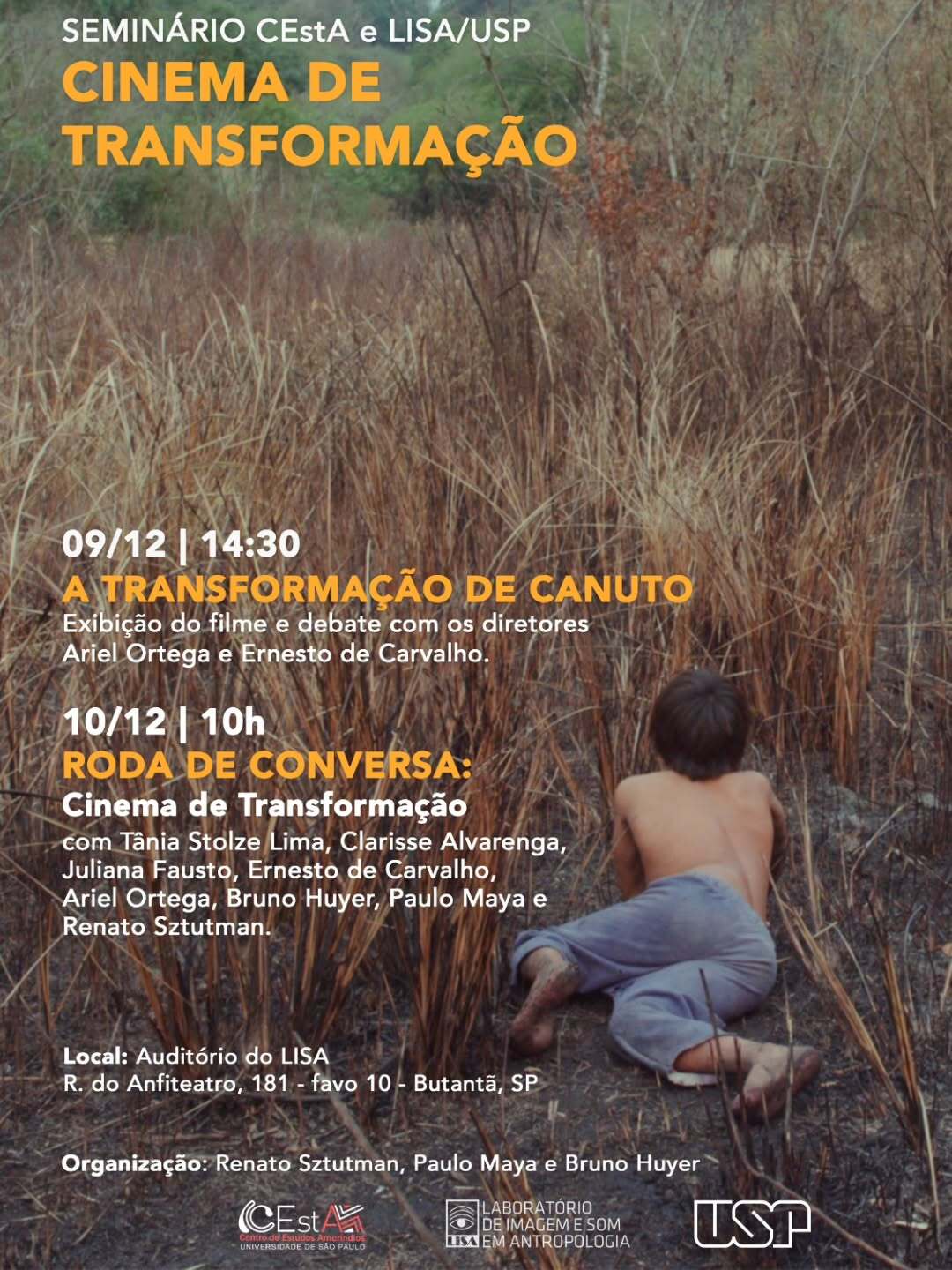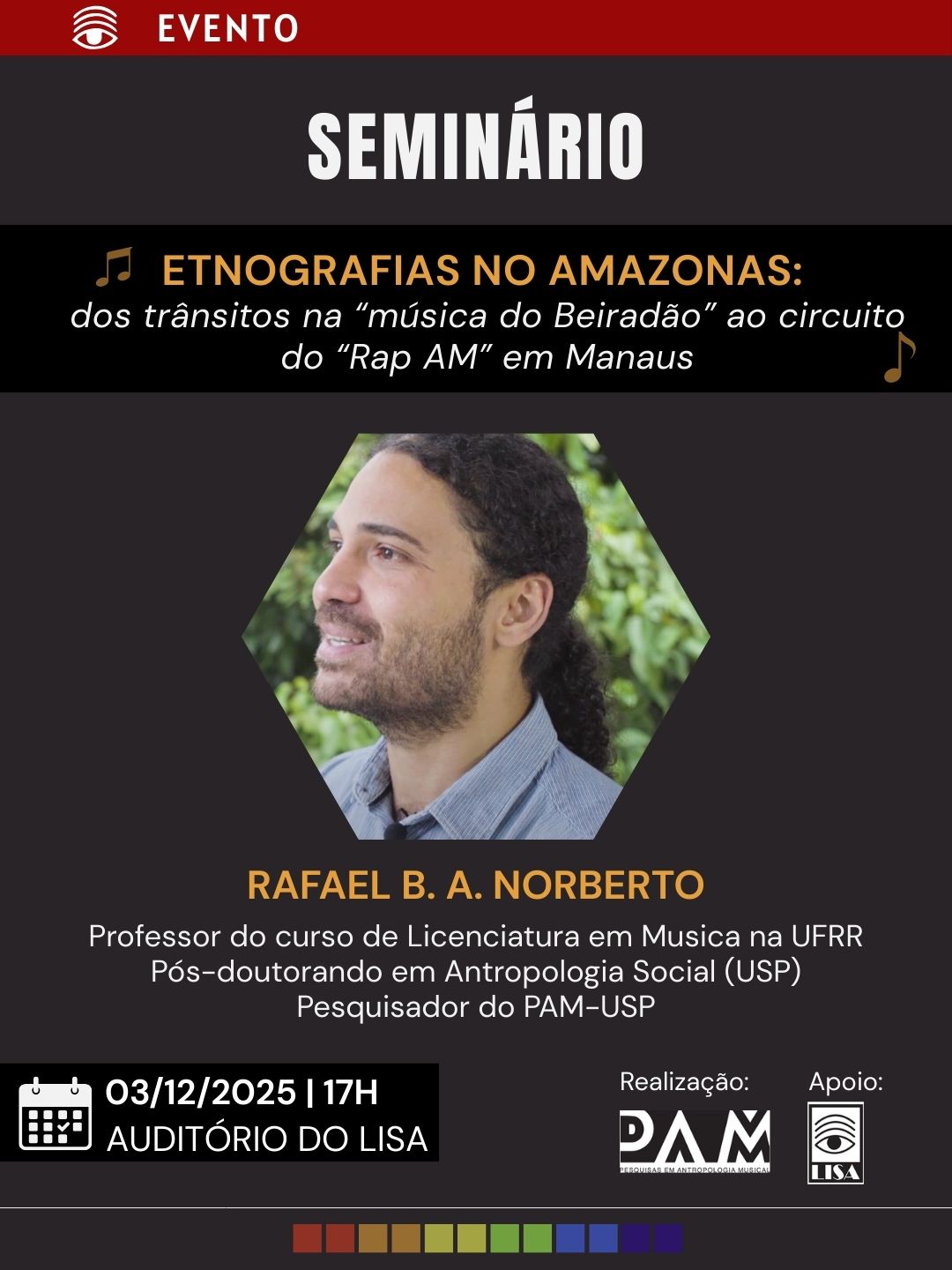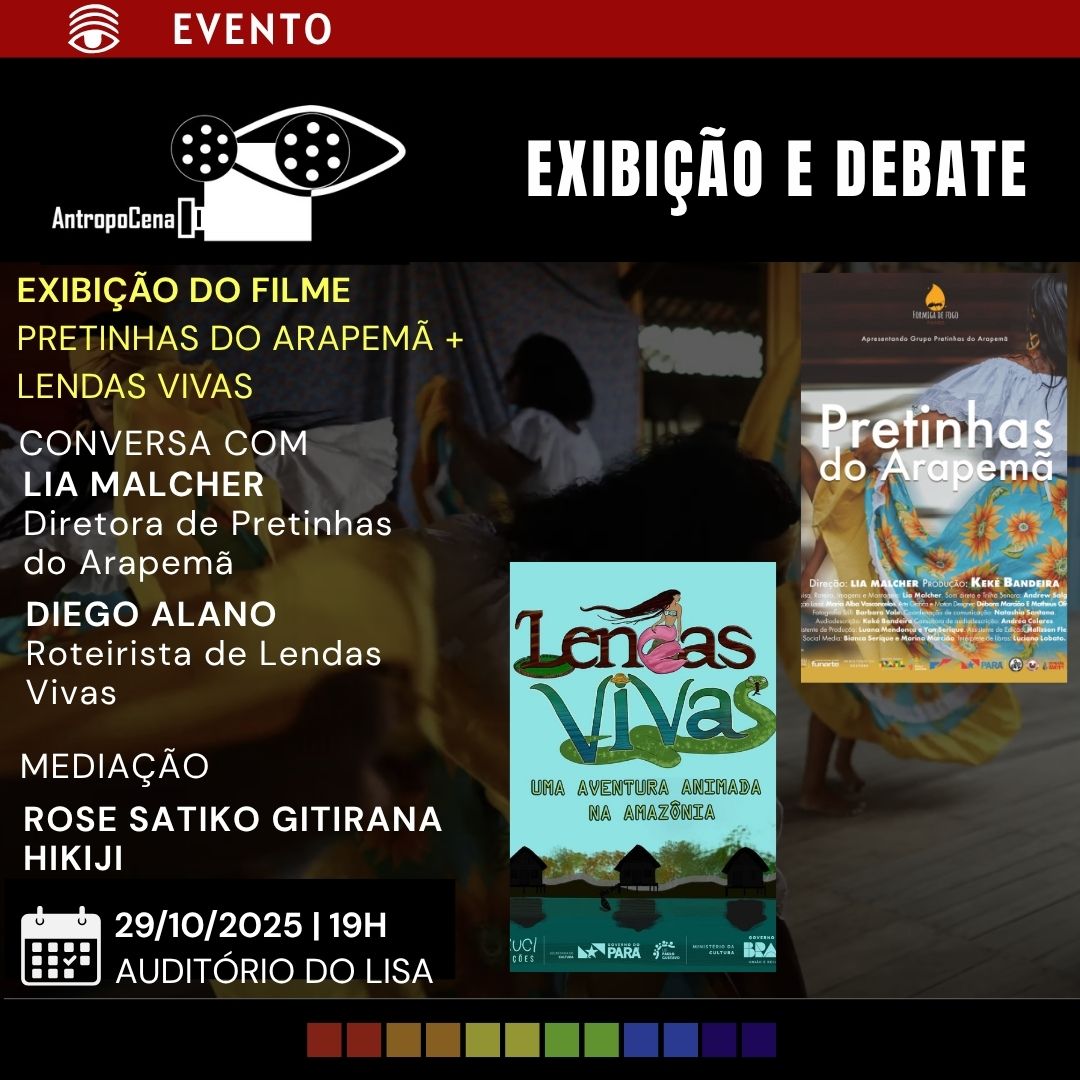Happened at LISA
Rose Satiko Hikiji, coordinator of LISA, presents research developed with the Department of Anthropology at USP at two universities in Norway.
On January 30th, the film São Palco - Cidade Afropolitana, a LISA-USP production directed by Jasper Chalcraft and Rose Satiko, will be screened at UIT - The Arctic University of Norway, with the presence of the directors, who will also hold a workshop on Film and Collaborative Anthropology on February 2nd.
On February 28th, she will present the conference Filming musicking: listening nearby with Afro-diasporic musicians in Brazil at the University of Oslo, in the SAI seminar series of the Department of Social Anthropology. More…
How can images become a critical tool in anthropology? The course "Photography as Ethnographic Writing: Case Studies from Amateur Football" proposes an immersion in the connections between ethnography and photography. Taking amateur football as a central case study, we will explore photography as a critical tool for the production of anthropological knowledge.
Topics discussed:
* The origins and historical context of the use of photography in anthropology;
* How to work with, read, and interpret photographic archives in research;
* Methodologies for constructing ethnographic visual narratives;
* The practice of immersive photography "up close and from…
Seminar - Cinema of Transformation: around The Transformation of Canute
Link to the trailer:
https://www.youtube.com/watch?v=dGogSEOQxWg
Tuesday, December 9, 2025
2:30 PM, at the LISA Auditorium
Screening of the film "The Transformation of Canute" (Ariel Kuaray Ortega and Ernesto de Carvalho, 2024, 130')
After the film there will be a discussion with the filmmakers Ariel Kuaray Ortega and Ernesto de Carvalho
Wednesday, December 10, 2025
10:00 AM, at the LISA Auditorium
Roundtable discussion "The Cinema of Transformation" with Tânia Stolze Lima, Clarisse Alvarenga, Juliana Fausto, Ariel Ortega, Ernesto de Carvalho, Bruno Huyer,…
On December 3, 2025, at 5 PM, the Laboratory of Image and Sound in Anthropology at the University of São Paulo (LISA-USP) will host the seminar “Ethnographies in the Amazon: from the transits in the ‘Beiradão music’ to the ‘Rap AM’ circuit in Manaus,” which will be presented by Rafael Branquinho Abdala Norberto, researcher of the “Research in Musical Anthropology” group (PAM-USP) and postdoctoral fellow in the Department of Anthropology at the Faculty of Philosophy, Letters and Human Sciences of USP (DA-FFLCH-USP). The event is open to the public.
The event aims to foster debate around two musical cultures of/in the state of Amazonas – “Beiradão music” and “AM Rap” – based on…
maisOn November 28, 2025, at 2:30 PM, LISA will host the seminar "(Im)mobilities of Fire: Exploring the Relationships between Human and Non-Human Mobilities and Fires in Brazil".
The event is an initiative of the CHAMA-USP research group and will feature the participation of Greta Mazzocchi, a researcher on the ERC FIREPOL project and a doctoral candidate in Urban and Regional Studies in the inter-university program at the Polytechnic University of Turin, in co-supervision with the Postgraduate Program in Anthropology at USP.
Event open to the public, free of charge and subject to space limitations. Location: Rua do Anfiteatro, nº 181, favo/sala 10, Cidade Universitária… maisFilm screening: São Palco - Cidade Afropolitana
by Jasper Chalcraft and Rose Satiko Gitirana Hikiji.
Synopsis: What do African artists who have arrived in Brazil in recent years carry with them on their journey? The documentary presents the city of São Paulo as a meta-stage occupied by artists from Togo, Mozambique, the Democratic Republic of Congo, and Angola, among other African nations, in dialogue with the Brazilian population and its openness, contradictions, and tensions.
The event is part of the activities of the project Presença e Memória Negra na FFLCH: para além de novembro (Black Presence and Memory at FFLCH: beyond November). Check out the schedule:…
maisThe Consulate of France in São Paulo and the Postgraduate Program in Social Anthropology at the University of São Paulo (PPGAS/USP) invite you to the series entitled "What if the West were not the only one to philosophize?", with Frédéric Fruteau de Laclos (Université Paris-Est Créteil).
Conference "Philosophies africaines: ethnophilosophie, géophilosophie, philosophie comparée: la question de la pensée en Afrique”
Debater: Tiganá Santana (IEB-USP)
There will be simultaneous translation
Date: November 11, 2025 (Tuesday)
Time: 5 PM
Location: CNRS House - Rua da Reitoria, 100; University City
Seminar “Bruno Latour et le…
The 12th National Meeting of the Brazilian Association of Ethnomusicology (ENABET) will screen films from LISA-USP between November 7th and 13th, 2025.
Woya Hayi Mawe - Para onde vais? (2018)
Date/Time: November 7, 2025 | 10:30 AM
Location: Federal University of Recôncavo da Bahia (UFRB) – Santo Amaro (BA)
Synopsis: Following Lenna Bahule, a Mozambican artist, we see how she faces the challenges of being a musician, a woman, and Black in both Brazil and Mozambique. The São Paulo art world demands her African identity, her roots. Meanwhile, in Mozambique, Lenna is now known for her success in Brazil. Back in her homeland, she rediscovers it with new eyes.…
maisThe Center for Amerindian Studies (CEstA) and the Laboratory of Image and Sound in Anthropology (LISA-USP) hereby extend an invitation to an indigenous film screening, which is to be held as part of the AntropoCena project on 12 November 2025, commencing at 2 p.m. Subsequent to the screenings, discussions shall take place with researchers and film directors Aline Regitano and Bruno Huyer.
Aline Regitano is a doctoral student in Social Anthropology at the University of São Paulo (USP) and a researcher at CEstA - Center for Amerindian Studies. For a period of ten years, she has been engaged in research with the Mehinako people of the Upper Xingu, with a particular focus…
maisOn October 29, 2025, LISA will present a screening of two short films: Pretinhas do Arapemã, directed by Lia Malcher, and Lendas Vivas, written by Diego Alano. The presence of both filmmakers at the AntropoCena sessions, moderated by Rose Satiko Gitirana Hikiji, is noteworthy.
The screenings are scheduled to occur in the auditorium of the Laboratory of Image and Sound in Anthropology at the University of São Paulo (LISA-USP) on the following dates:
On October 29, 2025, scheduled sessions will commence at 7 p.m.
Pretinhas do Arapemã:
This brief documentary chronicles the history of Pretinhas do Arapemã, a dance and singing group comprised of 12 women hailing…












